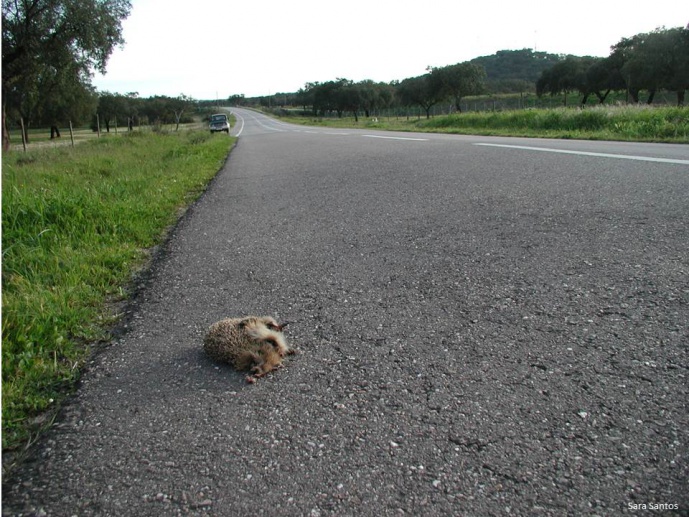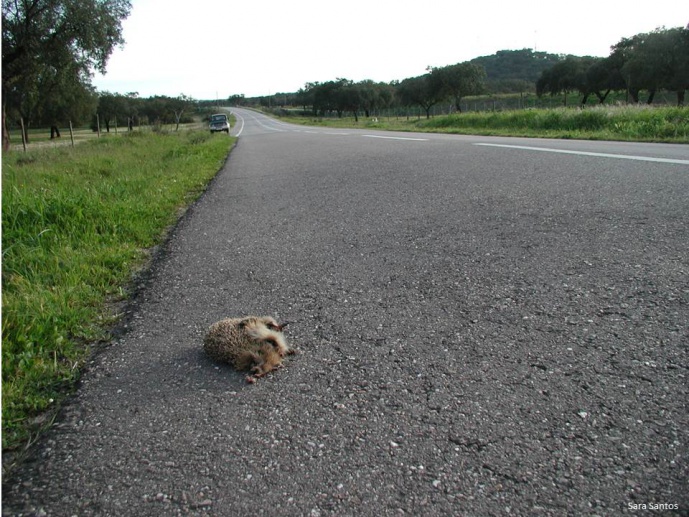POPCONNECT- combining genetic and fieldbased data to access the effects of roads on landscape functional connectivity and population viability
Roads are responsible for habitat fragmentation in terrestrial environments. The most immediate and direct effect of roads on wildlife is mortality associated with vehicle collisions. In addition, this road mortality can also result in demographic and structural changes to populations since it alters survival and dispersal, many taxa exhibiting some degree of road avoidance. Combined, direct mortality and road avoidance can create barriers to gene flow, thus causing populations to become genetically isolated. This will increase genetic drift and inbreeding, which can lead to losses of rare alleles, reduced heterozygosity, and, ultimately, decreased population fitness. Both roadkills and movement restriction increase functional isolation of populations thus reducing landscape functional connectivity and population viability.
With the current proposal we aim to assess the relative importance of roadkills and barrier effect in changes of landscape functional connectivity and evaluate the implications of these in long term population viability. We hypothesize that populations living in road dominated environments, with reduced population size and decreased dispersal, exhibit reduced genetic diversity and structured (differentiated) subpopulations on each side of the main roads, which may lead to a decrease in their viability.
The study area (SA) is a typical Mediterranean landscape near Évora (southern Portugal), which includes a 25 km long stretch of the main terrestrial transportation corridor linking Lisbon to Madrid and a Nature 2000 Site (Monfurado). The study will be based on several case studies using mammals with different vagility and locomotion behaviour, including flying and non-flying, and a small mammal and a carnivore. We will combine microsatellite markers, telemetry, roadkill data and modelling to assess the effects of roads on population parameters and landscape functional connectivity. These issues will be addresses mostly with spatially explicit models for both movement and genetic data, and will be used to evaluate population viability under different scenarios.
Galantinho A, João Marques


